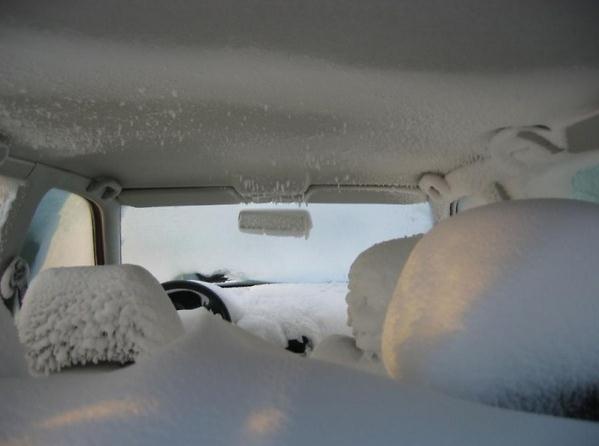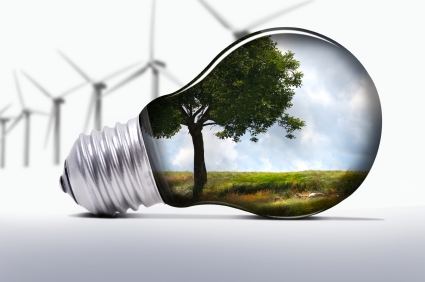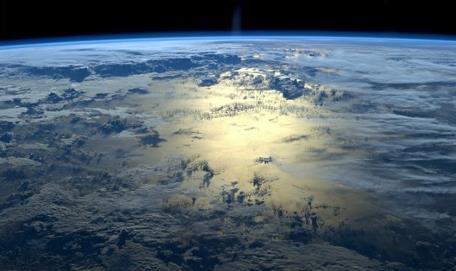72 F. average high on September 12.
68 F. high on September 12, 2015.
September 13, 1994: Lightning strikes and injures a 35 year old man in Stearns County as he opens the door of his truck. Witnesses said he was thrown 10 feet when the lightning bolt struck him.
September 13, 1834: Smoke fills the sky at Ft. Snelling due to fires burning nearby.

A Harsh, Pioneer Winter? Recent Trends Suggest Otherwise
Everywhere I go people ask the same 3 questions: "How do get your hair looking so soft and manageable...do the Vikings have a real shot...and will we suffer through a Polar Vortex winter?"
I wish I had a clue.
But just look at recent trends: 2016 is on track to be the warmest year on record, worldwide - warmer than the previous records set in 2015, 2014, 2010 and 2005. We've just had our 11th "hottest month" in a row; some scientists suspect it may be the warmest stretch in 8,000 years.
Winter's still coming - there will be bouts of intense cold and snow. But I've learned not to buck the trends. The odds of a frigid winter are small, less than 1 in 4. In fact NOAA just cancelled the La Nina Watch. The warm signal is overwhelming slight cooling of the Pacific Ocean.
Today will feel like fall with a damp start; highs in the 60s with a generous smear of clouds. Bright sun returns Wednesday before the next soggy slap of showers and T-storms Thursday into Saturday.
Parts of the Minnesota Arrowhead may experience a frost by Wednesday morning but NOAA's GFS model shows 80s here into late September.
4th Wettest Meteorological Summer on Record for Minnesota. Here's an excerpt of an explanation from NOAA NCEI: "One way to depict how a month or season compares to its history is to use a ranking system. NCEI has done this for many years for the climate divisions, states, etc. The maps below depict rankings based on the 5km gridded dataset, nClimGrid. Each grid point is ranked based on the other values in its own period of record. Ranking the grid cells provides a greater detail for the regional patterns across the CONUS and Alaska. For instance, several states were record warm in August. This record warmth is evident in both the percentile maps below and the climate division rank maps..."
5th Hottest U.S. Summer Saw Record Northeast Heat. Here's the intro to a recap at Climate Central: "The dog days of summer were especially scorching across the Northeast and Mid-Atlantic last month, with eight states in those regions recording their hottest August in 122 years. Two of those — Connecticut and Rhode Island — also had record-warm summers, according to data released Thursday by the National Oceanic and Atmospheric Administration. While ample rains kept temperatures closer to normal across much of the country last month, the contiguous U.S. still had its fifth-warmest summer on record and its third warmest year-to-date. Outside of the Lower 48, Alaska continued its streak of sweltering weather, with its third-hottest August and second-hottest summer in the past 92 years. So far, 2016 is far and away its hottest year on record..."
Map credit: "How the average temperature of each state in the Lower 48 ranked for August." Credit: NOAA
How The Sugar Industry Shifted Blame To Fat.
When data, facts and evidence don't go your way hire psuedo-experts to
spin the truth and keep the discussion going, right? Here's an excerpt
at The New York Times: "The
sugar industry paid scientists in the 1960s to downplay the link
between sugar and heart disease and promote saturated fat as the culprit
instead, newly released historical documents show. The internal sugar
industry documents, recently discovered by a researcher at the
University of California, San Francisco, and published Monday in JAMA Internal Medicine,
suggest that five decades of research into the role of nutrition and
heart disease — including many of today’s dietary recommendations — may
have been largely shaped by the sugar industry. “They were able to
derail the discussion about sugar for decades,” said Stanton Glantz, a
professor of medicine at U.C.S.F. and an author of the new JAMA paper..." (Photo credit: iStock).
A Robot May Be Training To Do Your Job. Don't Panic. Looking over the horizon we will (all) have to relearn how to learn - and do thinks robots cannot. Here's an excerpt from The New York Times: "...The
widespread adoption of social robotics in the workplace faces a host of
potential problems, including a lack of infrastructure and power
requirements, deficient awareness of surroundings, and public
resistance. Eventually, though, the moment will come when machines
possess empathy, the ability to innovate and other traits we perceive as
uniquely human. What then? How will we sustain our own career
relevance? I think the only way forward is to look at artificial
intelligence developments as an opportunity rather than a threat. We
need the mind-set that success is no longer about our level of knowledge
but about our level of creative intelligence. If we accept the process
of lifelong learning, in which we adapt to new ways of working as
technology improves, we’ll always find roles that take advantage of our
best qualities..."
Image credit: Amy Su.
Photo credit: "The Karma Revero costs $130,000. Production has not yet started." Source: Karma Automotive.
How To Become a CEO? The Quickest Path is a Winding One. Here's an excerpt of an interesting post at The New York Times: "...In
effect, the increased ability to collect and analyze such troves of
data raises the possibility that in the future we’ll be able to better
understand what types of education the workers of the future most need,
how companies can best recruit future star performers and how
individuals can position themselves to benefit from shifts in what
skills the modern economy most rewards. There is a lot of work to be
done to get to that point. But this early evidence suggests that success
in the business world isn’t just about brainpower or climbing a linear
path to the top, but about accumulating diverse skills and showing an
ability to learn about fields outside one’s comfort zone..."
iPhone 7 Plus Photos From The Titans-Vikings Game. Here's an excerpt of a photo essay from Sports Illustrated: "On
Wednesday, Apple unveiled the brand new iPhone 7 and iPhone 7 Plus,
both of which feature an entirely new camera system. Now some of the
first photos taken by the new iPhone 7 Plus camera are being unveiled
exclusively on SI.com. On Sunday, Sports Illustrated photographer David
E. Klutho took photos with the new iPhone 7 Plus camera at the
Titans-Vikings game. The iPhone 7 Plus has a 12–megapixel telephoto
camera that offers new zooming capabilities. Each new model also
features a wider aperture and a lens that allows the camera to capture
brighter and more vibrant colors in photos and videos..."

TODAY: Damp start, gray & cool. Winds: N/NW 10-15. High: 65
TUESDAY NIGHT: Partly cloudy and cool. Low: 47
WEDNESDAY: Bright sun returns, optimism returns. Winds: NE 3-8. High: 68
THURSDAY: Clouds increase. PM showers, possible T-storms. Winds: SE 10-15. Wake-up: 53. High: 71
FRIDAY: Still unsettled. Another shower, stray T-shower. Winds: S 8-13. Wake-up: 61. High: 75
SATURDAY: Lingering clouds, couple of showers. Winds: NW 8-13. Wake-up: 60. High: 69
SUNDAY: Sunnier, nicer day of the weekend. Winds: S 8-13. Wake-up: 55. High: 76
MONDAY: Breezy and mild, late T-storm? Winds: S 10-20. Wake-up: 59. High: near 80
Climate Stories...
Photo credit: "Rain fell for seven days in the worst natural disaster since Hurricane Sandy." Source: Max Becherer/AP.
Welcome to Carlisle, the British City with a Climate Change Bulls-Eye. Here are a couple of excerpts from a New York Times article: "After this ancient fortress city was hit by a crippling flood in 2005, its residents could take some comfort in the fact that it was the kind of deluge that was supposed to happen about once every 200 years. But it happened again four years later. And again last winter, when Storm Desmond brought record-breaking downpours that turned roads into rivers, fields into lakes, living rooms into ponds...In many places, the threat of climate change
can still feel distant, even theoretical. But not here, a city of about
74,000 in the far northwest corner of England, where one of its rivers
swelled to about 30 times its normal volume last year..."
Photo credit: "Carlisle’s city center flooded in December 2015. About 2,000 houses and 500 businesses were damaged or destroyed." Credit Andrew Yates/Reuters.
A Conservative Republican Tackles Climate Change. Rep. Bob Inglis (a friend and mentor) is fighting a lonely battle, but he is on the right side of science, and history. Here's an excerpt of an interview with Rep. Inglis at The Charlotte Observer: "...We’re essentially calling on conservatives to step forward with free-enterprise solutions to climate. Rather than regulating down the amount of carbon dioxide in the atmosphere, we simply have the government put a price on emissions. That price signal would be sensed throughout the economy, with the result that hundreds of millions of consumers would pursue their own self interest. They would be seeking cleaner fuels because it would be in their economic interest to do so. It’s something that conservative economists have talked about for quite a while, the idea of not regulating but attaching all the costs and revealing all the hidden costs of a product so the market can judge that product..."
Photo credit: "Rising sea levels, which scientists attribute to climate change, threaten homes along North Carolina’s Outer Banks, such as these in Nags Head in 2010." JOHN D. SIMMONS.

The Business Case To Mobilize Against Climate Change: Jobs and Innovation. Co.Exist has an article that resonated; here's an excerpt: "...By
pursuing innovation, generating jobs, and doing our part, industry can
help lead a climate mobilization effort with the same spirit and fervor
that lifted the United States out of the Great Depression and defeated
one of the most dangerous fascist regimes in history. A cover article in
the New Republic recently made the case for viewing climate change as a global enemy—and
the analogy delivers important parallels for the role of business,
industry, and innovation. The idea that necessity is the mother of
invention, and America’s uncompromising resolve for victory in World War
II generated inventions that continue to enhance our lives today..."

Editorial: No Denying Climate Change Impact in Florida. Here's an excerpt of an Op-Ed at The Tampa Bay Times: "The
effects of man-made climate change, which scientists have warned about
for decades, are now lapping at Florida's coastlines. In South Florida,
rising sea levels are already overwhelming stormwater systems, damaging
infrastructure and flooding homes. Tampa Bay can't be far behind. But
local governments can do only so much to confront this global challenge.
Floridians must demand that state and national leaders shed any notion
that climate change can be ignored and confront the problem with
urgency..."
We're Hard-Wired to Ignore Climate Change. Here's a snippet from The Winnipeg Free Press: "...The
truth is we’re virtually hard-wired to ignore climate change. Our
evolutionary brains are attuned to immediate danger, prioritizing a
visible threat over an implicit one. We are also a storytelling culture,
better able to comprehend an issue when it is framed for us with clear
antagonists and protagonists, stakes and consequences. Climate change is
a characterless and amorphous threat to our future, until its fallouts
directly affect us. So naturally we consider other politics more
pressing. The reality of climate change is it is a global event taking
place right now. It is not simply an apocalyptic future narrated by Alec
Baldwin. Some climate change psychologists explicitly reject this
framing as it can cause the viewer to feel paralyzed in taking action..."
(this is the part with serious scrolling)
Timeline of Earth's Average Temperature Since The Last Ice Age. xkcd.com does a masterful job of putting recent warming into stark perspective. Prepare to do some serious scrolling...
Here Are All The Ways That Politicians Lie About Science. Mother Jones reports; here's an excerpt: "...While misleading rhetoric is nothing new in politics, the danger it poses to environmental and public health may be at an all-time high. In a country where scientific literacy is already in decline, misinformation about topics as significant as climate change or infectious diseases can have devastating consequences.
Yet many politicians, purposely or not, continue to get the science
wrong. Levitan points to Sen. James Inhofe (R-Okla.) as an example of
the perfect "denier-in-chief." Last year, Inhofe brought a snowball to the Senate floor
to dispute the science of global warming. His implication: Because
there was snow on the ground, the Earth couldn't possibly be getting
warmer. It was a classic display of a cherry-picking politician using a
single data point to obscure an indisputable trend..."

No comments:
Post a Comment